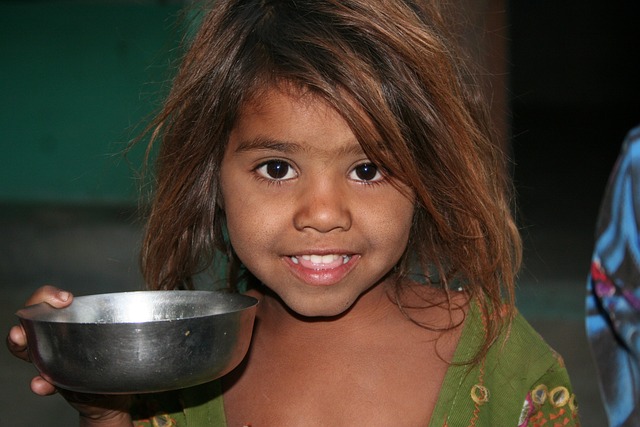Juvenile law focuses on the rights and well-being of children and adolescents, emphasizing protection and rehabilitation over punishment. Juvenile lawyers advocate for vulnerable youth facing neglect, abuse, or at risk of harm, collaborating with agencies to provide comprehensive legal services addressing domestic violence, substance abuse, and mental health concerns. They break neglect cycles by promoting positive outcomes through alternative sentencing and foster care legal services, ensuring fair treatment and safe environments within the juvenile court system. Key areas include child protection, placement decisions, termination of parental rights, and advocating for at-risk youth's best interests, fostering a robust system that safeguards child welfare.
In the intricate realm of juvenile law, the focus shifts from adult culpability to a child’s well-being. This branch of the legal system navigates the unique challenges faced by minors entangled in various issues, from neglect and abuse to delinquency. Understanding these complexities is paramount, as it dictates the crucial role of a juvenile lawyer, advocating for young clients while ensuring child protection in juvenile court. This article delves into these aspects, exploring how legal representation fosters fairness and support for vulnerable youth, including those in foster care.
- Understanding Juvenile Law and Its Focus on Children's Welfare
- The Role of a Juvenile Lawyer: Advocating for Young Clients
- Child Protection in Court: Ensuring Fair Treatment for Minors
- Foster Care Legal Services and Supporting At-Risk Youth
Understanding Juvenile Law and Its Focus on Children's Welfare

Juvenile law is a specialized field that focuses on the legal rights and needs of children and adolescents who have come into conflict with the law, or whose welfare is at risk. Its primary goal is to ensure the protection and well-being of minors, often referred to as “children in need” or “juveniles.” Unlike adult criminal cases, juvenile law proceedings prioritize rehabilitation, education, and guidance rather than punishment. The system aims to address the underlying causes of delinquent behavior and prepare young people for successful reintegration into society.
In the context of child welfare, juvenile lawyers play a pivotal role in advocating for the rights of children who have experienced neglect, abuse, or are at risk of harm. They represent children’s interests in court, ensuring that their best interests are considered during legal proceedings related to custody, foster care placement, and adoption. Child protection attorneys also work closely with child welfare agencies, schools, and community organizations to provide comprehensive legal services for vulnerable youth. By addressing issues like domestic violence, substance abuse, and mental health concerns, these professionals contribute to the broader goal of promoting healthy development and safeguarding the rights of children and adolescents in the justice system.
The Role of a Juvenile Lawyer: Advocating for Young Clients

A Juvenile Lawyer plays a pivotal role in advocating for young clients within the intricate landscape of juvenile law. These legal professionals are dedicated to ensuring that children and adolescents accused of delinquency, involved in child welfare cases, or victims of neglect, abuse, or exploitation receive fair representation and protection under the law. They navigate the unique challenges faced by youth in the criminal justice system, focusing on rehabilitation and rehabilitation over punishment.
Juvenile lawyers must possess a deep understanding of child development, mental health issues common among adolescents, and the impact of trauma to effectively defend their young clients. They collaborate with social workers, psychologists, and other professionals to build robust defenses that consider the best interests of the child while advocating for their rights within the juvenile court system. Furthermore, these lawyers often advocate for alternative sentencing options, such as diversion programs or foster care legal services, to help break cycles of systemic child neglect and promote positive outcomes in young lives.
Child Protection in Court: Ensuring Fair Treatment for Minors

In juvenile law cases, the primary focus is on the well-being and best interests of minors involved in legal proceedings. Child protection in court plays a crucial role in ensuring fair treatment for children, especially those facing charges of juvenile delinquency or those victims of child abuse and neglect. Juvenile lawyers and child welfare attorneys advocate for the rights of minors, navigating complex legal systems to protect their interests.
The process involves careful consideration of each case, taking into account the unique circumstances surrounding child welfare issues. Foster care legal services are often required to ensure a safe and stable environment for children while their cases are being heard. Child advocacy groups also work tirelessly to support minors, providing resources and guidance to help them navigate the juvenile court system effectively and ultimately promote their healing and growth.
Foster Care Legal Services and Supporting At-Risk Youth

In many cases involving juvenile law, especially those concerning child welfare and protection, Foster Care Legal Services play a pivotal role in advocating for at-risk youth. These services are designed to ensure that children in foster care receive adequate legal representation, a right guaranteed under juvenile law. Juvenile lawyers specializing in this area work tirelessly to safeguard the interests of children who may be victims of neglect, abuse, or delinquency. They navigate the complex landscape of juvenile court, ensuring that every child’s rights are upheld and their best interests are served.
Child welfare attorneys dedicated to foster care legal services provide crucial support by assisting in various matters, including placement decisions, termination of parental rights cases, adoption proceedings, and addressing issues of child neglect or abuse. Their expertise helps navigate the intricate rules and regulations within juvenile law, ensuring a fair and just outcome for the young clients they represent. Through these efforts, they contribute significantly to fostering a more robust system that advocates for and protects the rights of children in need.
Juvenile law cases demand a nuanced approach that prioritizes the best interests of children while ensuring their rights are protected. Throughout this article, we’ve explored various facets, from understanding the focus on child welfare to the critical role of juvenile lawyers advocating for young clients and providing foster care legal services. Child protection in court remains paramount to guarantee fair treatment for minors, especially when dealing with issues like neglect, abuse, and delinquency. Ultimately, a dedicated child advocacy approach, led by knowledgeable child rights lawyers, is essential to navigating the complexities of juvenile court and fostering positive outcomes for at-risk youth.
